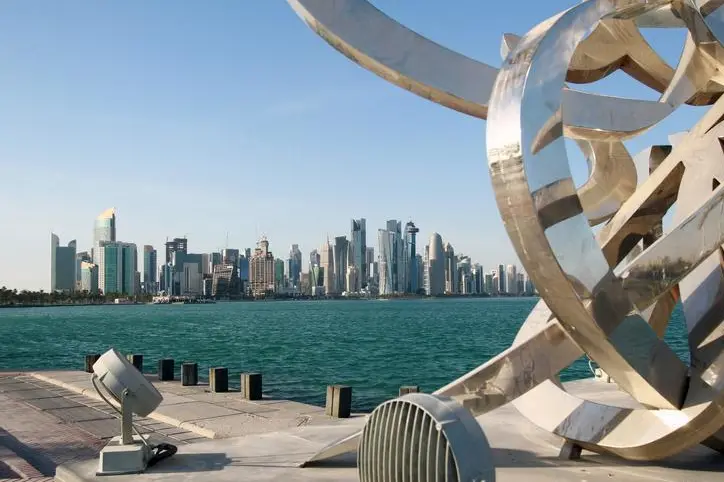PHOTO
Doha, Qatar: Qatar’s economy has grown by 1.7 percent, while the GDP of hydrocarbon and non-hydrocarbon augments by 1.4 percent and 1.9 percent respectively.
In a press conference yesterday, the Minister of Finance H E Ali bin Ahmed Al Kuwari unveiled the key economic drivers and highlighted insights on revenue and expenditure figures, and sector allocations among others.
The Minister said “This is very important for us because we know that the most important element in the Third National Development Strategy (NDS3) of Qatar is diversification and to be a non hydrocarbon sector and reliance on other sectors like the knowledge base, health, education, industries and tourism.”
“If we look now to the economic growth for the first quarter and second quarter of this year, we will find out that the growth was 1.1 percent for the first half of the year, but we have noticed that the non hydrocarbon sector has led this increase with 2.2 percent, Minister Al Kuwari explained.
While the hydrocarbon sector showed a slight decrease due to the maintenance and contracts, the non hydrocarbon sector is leading the growth and is going by the expectation, said the Minister.
Numerous market experts noted that the Qatari economy is expected to grow by 2 percent, with stable performance in the hydrocarbon sector and strong growth in the non-oil sector, particularly in tourism and construction.
Analysts underscored that hydrocarbons will continue to be an “important force” for long-term growth in Qatar, especially at the start of 2026, when projects aimed at increasing liquefied natural gas (LNG) production are set to enter the production phase.
In terms of the expenditure, Minister Al Kuwari highlighted that total expenditures are estimated to amount QR210.2bn, a 4.6 percent increase compared to 2024. He also mentioned that the expected budget deficit of QR13.2bn will be financed through local and external debt instruments as required.
Minister of Finance accentuated that the allocations for salaries and wages in 2025 have increased to QR67.5bn, a 5.5 percent rise from 2024. Current expenditure allocations surged by 6.3 percent and minor capital expenditures by 7.7 percent compared to the previous year.
“We have an increase in salaries and wages amounting to 10 percent and I this is the biggest increase since years and the reason for the increase is based on the National Development Strategy. One of the initiatives of the NDS3 is attract more competencies and also to motivate and boost the national workforce."
“This is also linked to the human capital law which aims to increase the performance of employees in the government and attract talents and to maintain talents in the country but also to create new jobs and support the private sector. Therefore, we have increased salaries and wages,” the Minister said.
He further added added, “We consider it not just an increase but investing in the citizens and the human capital.” Minister Al Kuwari also pointed out that the inflation rate has commenced to return to normal levels, reaching 1.3 percent by the end of September, which is among the best rates globally. The inflation rate in 2023 declined by 3.1 percent, while it came down to 1 percent this year. The Minister highlighted that inflation is anticipated to be solid at nearly 2 percent from 2025.
Moody’s affirmed Qatar’s economy with an Aa2 rating, while Standard & Poor’s and FitchRating upgraded to AA rating in 2024.
Commenting on the credit rating, the Minister said that the primary reason is Qatar’s continued efforts to raise the efficiency of human resources, develop financial reserves, control expenditures, and have good strategic plans for dealing with concerns.
© Dar Al Sharq Press, Printing and Distribution. All Rights Reserved. Provided by SyndiGate Media Inc. (Syndigate.info).




















